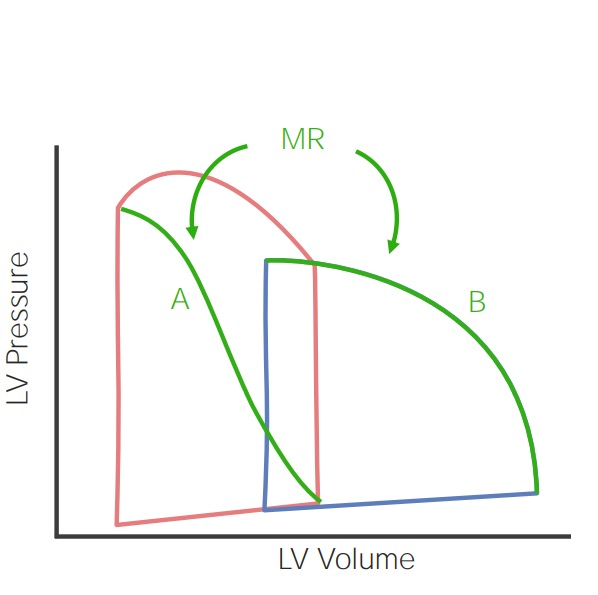Playlist
Show Playlist
Hide Playlist
Mitral Regurgitation: Pathogenesis
-
Slides Valvular Heart Disease Mitral Regurgitation Cardiovascular Pathology.pdf
-
Download Lecture Overview
00:01 With mitral regurgitation that’s going to be backward flow. 00:04 In myocardial disease we talked about acutely is a common cause on the left side in terms of your heart valves, early on regurgitation. 00:12 Next, what may then happen? Well, infective endocarditis. 00:16 Now do not forget, the valves are on the inner aspect of the heart so therefore it has to be endocarditis. 00:22 I really wanna make sure that I hammer that home because with rheumatic heart disease we said that it’s pancarditis -- endocarditis, myocarditis, and pericarditis but this is specifically endocarditis. 00:35 Acute mitral regurgitation caused by rupture of the papillary muscle that may have occurred during post MI complication, do you remember that? Okay. OMR. 00:46 What you wanna keep here separate, one more time, is MVP, well, to keep that separate because otherwise the maneuvers that we will be doing such as clenching of the fist, such as standing up and valsalva maneuver phase II; they’ll be quite different between the two types of murmurs here. 01:04 Now as the valve allows the blood to reflux in, the left atrium must then dilate, the left ventricle has to do what? It has to work harder, correct? And so, therefore at some point in time, when all this blood is in the left atrium, all of it is going to pour into your left ventricle and so therefore if anything, you'll have volume overload in your left ventricle. This will never occur in mitral stenosis. 01:27 What’s my topic? Mitral regurgitation. 01:30 Now, a couple of things that you wanna keep in mind in here, mitral regurgitation normal systole, you see the first picture on your left, unidirectional. 01:42 You get into acute mitral regurgitation, there's going to be high left atrial pressure and that is important for you to understand. 01:50 The left atrium, the atrium in general never accustomed to high volume, do you her what I'm saying? It’s never accustomed to high volume. 01:59 The atria has low pressure, it’s nice and delicate -- never should it be subject to such high pressure, so acutely, whoa, all those blood is coming to the left atrium, whoa, shocked! And so therefore, the left atrial pressure is acutely high, may result to any form of edema acutely. 02:20 Now chronically, what happens? The atria, just like any part of the body, is undergoing a process of adaptation. 02:28 And perhaps, the left atrium is as well. 02:31 And so chronically, you’ll have a dilated left atrium but the pressure in the left atrium might actually be on the normal side, is that clear? Because now the left atrium has become accustomed to that high volume, but initially, the compliance is low. 02:49 It’s stiff, that’s the pressure. Increases like that causing pulmonary edema, you get me? Good, now as the left atrium dilates we got a problem because well, I want you to predict to us what we're going to see on our pressure curves.
About the Lecture
The lecture Mitral Regurgitation: Pathogenesis by Carlo Raj, MD is from the course Valvular Heart Disease: Basic Principles with Carlo Raj.
Included Quiz Questions
How would you differentiate mitral regurgitation from mitral stenosis in a gross pathologic specimen of the heart?
- The left atrium and left ventricle are enlarged in mitral regurgitation.
- The left atrium is atrophied in mitral stenosis.
- The left ventricle is hypertrophic in mitral stenosis.
- The left atrium is atrophic in mitral regurgitation.
- The interventricular septum is enlarged in mitral stenosis.
Which of the following conditions is most likely to produce an acute murmur of mitral regurgitation?
- Papillary muscle rupture
- Rheumatic heart disease
- Endocarditis
- Marfan syndrome
- Dystrophic valve
Customer reviews
5,0 of 5 stars
| 5 Stars |
|
5 |
| 4 Stars |
|
0 |
| 3 Stars |
|
0 |
| 2 Stars |
|
0 |
| 1 Star |
|
0 |




